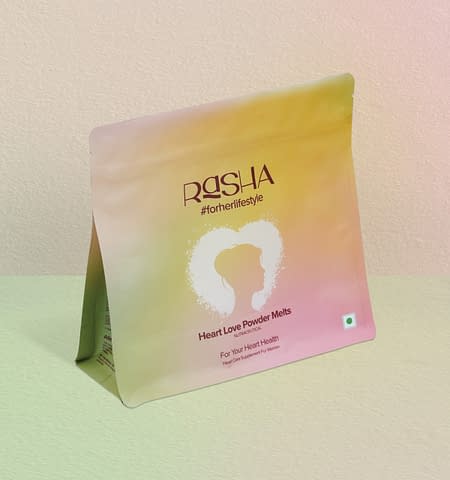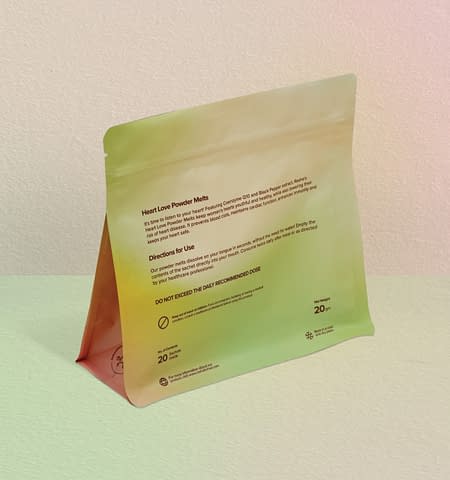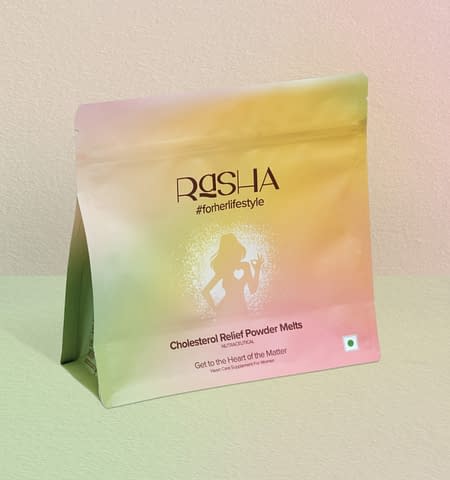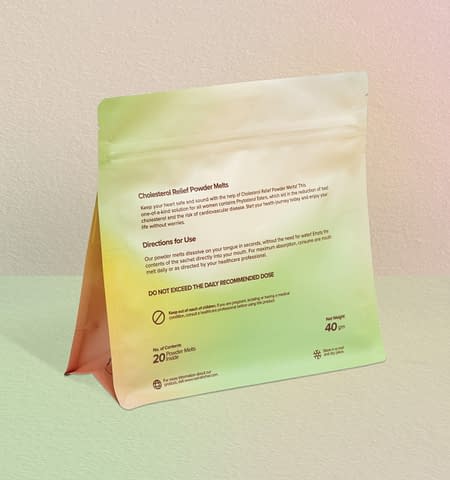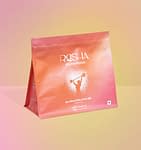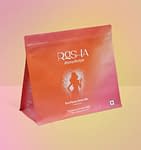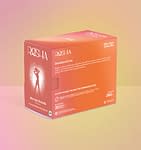Keep Your Heart Safe and Sound - A Rasha Guideline
Our body is a complicated network of organs, bones, and muscles. The heart, however, is the most important: it is the engine of our body. Pumping constantly day and night to maintain healthy blood flow to every part of our body and providing essential oxygen to every organ.
Due to the delicate nature of our heart, it is imperative to provide daily care for it. Did you know that with an estimated 17.9 million deaths each year, heart-related diseases are one of the leading causes of death worldwide according to the World Health Organization (WHO)?
Heart-related diseases are a collection of conditions that impact the normal functioning of the heart. One of the most common heart-related diseases is a heart attack, which occurs when blood flow to the heart is obstructed, leading to damage of the heart muscles.
Having learned about the importance of maintaining optimal heart health, you should now be equipped to identify any potential symptoms of heart-related complications in advance.
Let’s examine some common symptoms associated with heart-related complications:
- Racing heartbeat or slow heartbeat (You feel the beats slow down/pace up)
- Irregular heartbeats that feel rapid, pounding or fluttering (You seem to lose the rhythm of your heartbeat)
- Chest pain or chest discomfort (You feel like there’s a heavy stone on your chest)
- Shortness of breath during activity or at rest (You get tired easily)
- Pain, numbness, weakness or coldness in the legs or arms (You can’t feel your legs/arms)
- Dizziness (You feel like you’re gonna fall to the ground)
- Swollen legs, ankles or feet (Your legs, ankles and feet have increased in size)
Have you been experiencing any of the aforementioned symptoms? In case that’s the situation, you might need to take prompt steps to prioritize your heart health and seek medical advice.. However, it is also important to determine the specific cause affecting your heart.
Bad (LDL) cholesterol, diabetes, smoking, obesity, unhealthy diet, and physical inactivity are the main risk factors leading to heart disease. 1
Therefore, the latest guidelines concerning heart health recommend: 2
- Lowering high blood pressure
- Lowering high blood cholesterol levels
- Healthy diet
- Regular exercise
- Avoiding alcohol and smoking
Unsure of where to begin to improve your heart health?
It might seem a little too much to do it all. But Rasha has a very simple guideline to keep your heart safe and sound from all the complexities. So let’s start this lovely journey!
A healthier diet is the pathway to a healthier life
A healthier diet can provide a wealth of benefits for the human body. Eating a balanced diet that is rich in Nutrients, such as Fruits, Vegetables, Whole Grains, lean Proteins, and healthy Fats, can help maintain a healthy weight, reduce the risk of chronic diseases, and boost overall wellbeing.
Your diet should include a diverse selection of Whole Grains, Protein, Vegetables, Fruits, and healthy Fats –
- Whole grains: These include brown rice, dahlia, ragi, quinoa, oats etc., which are much better than refined grains.
- Protein: Power comes from protein. Include seafood, meats, poultry, eggs, nuts, seeds, soy products, beans, and peas.
- Vegetables and fruits: These are highly stacked with beneficial nutrients like essential vitamins and minerals as well as dietary fiber.
- Oils: We strongly recommend adding oils like vegetable oils and olive oil as they are a significant source of essential fatty acids and vitamin E.
- Try to avoid processed foods
- Minimize your intake of added sugars
- The way you cook matters: Roast, boil and steam your food but avoid frying
- Try to avoid excessive salt: Use less salt and rather take herbs to spice it up
After examining the benefits of improving your diet, you may ask: How is healthy food related to my heart? Well, that is a good question!
The scientifical answer is that bad cholesterol (also known as Low-Density-Lipoproteins or LDL cholesterol) causes a buildup of obstacles in your arteries and narrows them over time. To compensate for this, your heart has to work harder and increase the blood pressure. It is similar to salt: Eating too much salt can also lead to high blood pressure, which weakens your blood vessels and makes them more susceptible to diseases.
High blood sugar from diabetes can also damage your blood vessels and block them, causing a heart attack.
Having grasped the concept of how dietary improvements can enhance heart health, you may be wondering how to integrate these recommendations into your daily routine. Fear not, Rasha is here to assist you!
Explore Rasha's thoughtfully crafted health supplements designed to optimize your heart health.
-
-
Cholesterol Relief Powder MeltsRated 5.00 out of 5
₹1,999.00₹1,499.00 - or subscribe and save up to 5%
A healthy diet will protect your heart and help you reduce overweight, which is one of the most common risk factors for cardiovascular disease!
The next stop in our journey for a healthier lifestyle is regular physical exercise:
Scientific studies have demonstrated that physical exercise can aid in the prevention of various illnesses such as high blood pressure, diabetes, heart attack, stroke, cancer, osteoporosis, depression, and anxiety. Additionally, it can improve the quality of your sleep, overall quality of life, and day-to-day well-being.
The World Health Organization (WHO) generally recommends doing moderate-intensity exercises for around 150 min each week to reduce the risk of diseases for adults (18–64 years).5 Therefore, we suggest at least 20 minutes of physical activity every day.
The CDC and U.S. Department of Health and Human Services stated these exercise guidelines: 6,7
Aerobic activity: spend around 150 minutes on moderate aerobic activity or 75 minutes on vigorous aerobic activity in a week.
| Moderate Physical Activity | Burned calories/70 kg adult/ 1h |
|---|---|
| Hiking | 370 |
| Light gardening/yard work | 330 |
| Dancing | 330 |
| Golf (walking and carrying clubs) | 330 |
| Bicycling (~<16 km/h) | 290 |
| Walking (~5.7 km/h) | 280 |
| Weight lifting (general light workout) | 220 |
| Stretching | 180 |
| Vigorous Physical Activity | Burned calories/70 kg adult/ 1h |
|---|---|
| Running/jogging (~8 km/h) | 590 |
| Bicycling (~>16 km/h) | 590 |
| Swimming (slow freestyle laps) | 510 |
| Aerobics | 480 |
| Walking (~7.2 km/h) | 460 |
| Heavy yard work (chopping wood) | 440 |
| Weight lifting (vigorous effort) | 440 |
| Basketball (vigorous) | 440 |
Now you know what not to do. So let’s talk about what you should do and how. We at Rasha have designed an easy-to-follow guideline for you and your beautiful heart:
1. Beginner’s Routine (Your journey to a healthier heart begins here)
- What: Switch to a healthier diet to reduce bad cholesterol
- When: Throughout the week
2. Advanced Health Routine (For a fitter heart and life)
- What: Exercise to reduce overweight
- When: Thrice a week for 45 mins
Tip: Take Rasha’s Heart Love Powder Melts (with Coenzyme Q-10 and Black Pepper Extract) once or twice daily to ensure optimal heart health
3. Ultimate Heart Health (Regain optimal health)
- What: Exercise + healthy diet + avoid alcohol and smoking
- When: Throughout the week
Tip: Take Rasha’s Heart Love Powder Melts + Cholesterol Relief once a day
We have devised a simple and stylish solution to help you monitor your heart health without overwhelming you with scientific jargon:
Download our printable guide here and fall in love with the sound of your heartbeats.
References
- 1) Heart Dcdc.gov/chronicdisease/resources/publications/factsheets/heisease and Stroke, Available at: https://www.art-disease-stroke.htm#:~:text=Leading%20risk%20factors%20for%20heart,unhealthy%20diet%2C%20and%20physical%20inactivity, accessed on: 28/03/2023.
- 2) McDonagh, T. A., Metra, M., Adamo, M., Gardner, R. S., Baumbach, A., Böhm, M., Burri, H., Butler, J., Čelutkienė, J., Chioncel, O., Cleland, J. G. F., Coats, A. J. S., Crespo-Leiro, M. G., Farmakis, D., Gilard, M., Heymans, S., Hoes, A. W., Jaarsma, T., Jankowska, E. A., Lainscak, M., … ESC Scientific Document Group (2021). 2021 ESC Guidelines for the diagnosis and treatment of acute and chronic heart failure. European heart journal, 42(36), 3599–3726. https://doi.org/10.1093/eurheartj/ehab368
- 3) The American Heart Association Diet and Lifestyle Recommendations, Available at: https://www.heart.org/en/healthy-living/healthy-eating/eat-smart/nutrition-basics/aha-diet-and-lifestyle-recommendations#:~:text=Eat%20an%20overall%20healthy%20dietary%20pattern%20that%20emphasizes%3A&text=whole%20grains%20and%20products%20made,it%20is%20lean%20and%20unprocessed), accessed on: 28/03/2023
- 4) U.S. Department of Health and Human Services and U.S. Department of Agriculture. 2015 – 2020 Dietary Guidelines for Americans. 8th Edition. December 2015. Available at https://health.gov/our-work/food-nutrition/previous-dietary-guidelines/2015., accessed on: 28/03/2023
- 5) Physical activity, available at: https://www.who.int/news-room/fact-sheets/detail/physical-activity, accessed on: 28/03/2023
- 6) Physical Activity for a Healthy Weight, available at: https://www.cdc.gov/healthyweight/physical_activity/index.html, accessed on: 28/03/2023
- 7) U.S. Department of Health and Human Services. Physical Activity Guidelines for Americans, 2nd edition. Washington, DC: U.S. Department of Health and Human Services; 2018, Available at https://health.gov/our-work/nutrition-physical-activity/physical-activity-guidelines/current-guidelines, accessed on: 28/03/2023
- 8) Stress and Heart Health, available at: https://www.heart.org/en/healthy-living/healthy-lifestyle/stress-management/stress-and-heart-health, accessed on: 28/03/2023
Learn More About

Probiotics
Millions of bacteria – most healthy, and a few nasty....

Hydration
Hydration refers to the right water level in your body....
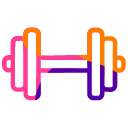
Workout
Workout: The Diary of A Fit Lady, Why is exercisise....

Anti-Aging
Aging is a complex and inevitable process....

Detox
Living in our modern world exposes us to a plethora....
Related Products
- Her WheyToGo Drink Mix
₹6,499.00₹4,874.00 - or subscribe and save up to 5% - Pro-Plants Drink Mix
₹4,999.00₹3,749.00 - or subscribe and save up to 5% - After-Gym Drink Mix
₹3,499.00₹2,624.00 - or subscribe and save up to 5%



 BY CATEGORY
BY CATEGORY BY INGREDIENTS
BY INGREDIENTS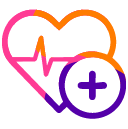 BY BENEFITS
BY BENEFITS HEART HEALTH
HEART HEALTH